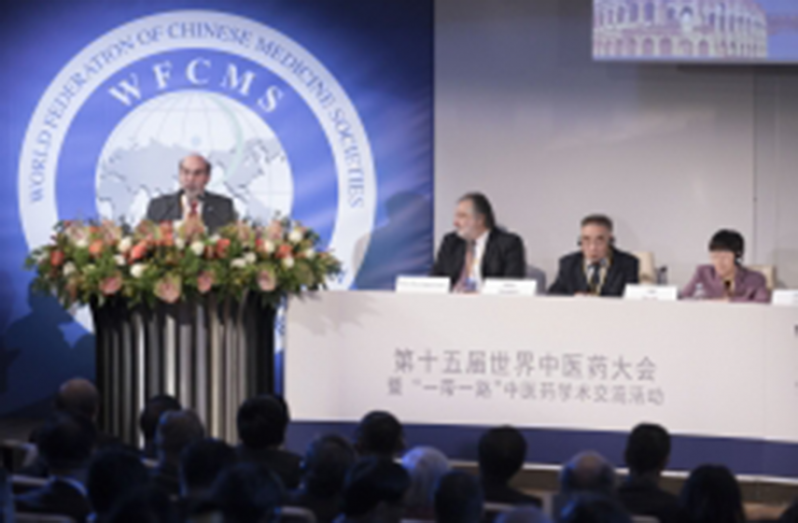Traditional Chinese medicine plays an important role in sustainable agriculture and food systems, in that it offers a holistic approach to prevent diseases while making use of organic and herbal products often grown by small-scale family farmers, FAO Director-General José Graziano da Silva, said.
Speaking at the 15th World Congress of Chinese Medicine held in Rome, the FAO director-general noted that achieving Zero Hunger is not just about feeding all people in the world by 2030, but it means nourishing people with the necessary nutrients for a healthy lifestyle.
This, he added, also requires tackling the current obesity pandemic, which has resulted from an increased consumption of industrialised and processed food, with high levels of salt, sugar and other additives.
“The globalised market of unhealthy products has contributed to making non-communicable diseases, like heart disease, cancer, and diabetes, the leading causes of death worldwide,” Graziano da Silva said.
“Traditional Chinese medicine calls on people to take more responsibility for their own health in a holistic and integrated way. It combines healthy and balanced diets, more exercise, herbal remedies, and ways to reduce everyday stress,” Graziano da Silva said, underscoring that investing in prevention is important to mitigate the high impacts of health costs on national budgets.
He pointed to how traditional Chinese medicine helps to promote sustainable agricultural development through growing demand for organic and herbal products in many parts of the world offering an interesting market for family farming.
“Differently from large-scale specialised farming, family farmers usually run diversified agricultural activities based on traditional knowledge. Over generations, they have developed many practices that help to avoid the use of large quantities of pesticides and chemicals. Family farmers also recover and preserve traditional crops, safeguarding biodiversity and contributing to healthier and more balanced diets,” Graziano da Silva said.
He stressed that China has accumulated a strong foundation for identification and utilisation of medicinal plants, as well as an ecological agroecosystem management that can be applied and adapted to food systems elsewhere in the world.
“A regulated and expanded traditional Chinese medicine system will enhance the production, harvest and marketing of important plant species, with particular focus on supporting small family farmers,” offering potential for knowledge sharing and South-South Cooperation, the FAO director-general said.
“This Congress can certainly contribute to the development and fostering of traditional Chinese medicine to the benefit of more people in developing and developed countries,” the FAO director-general said. (FAO)




.png)









